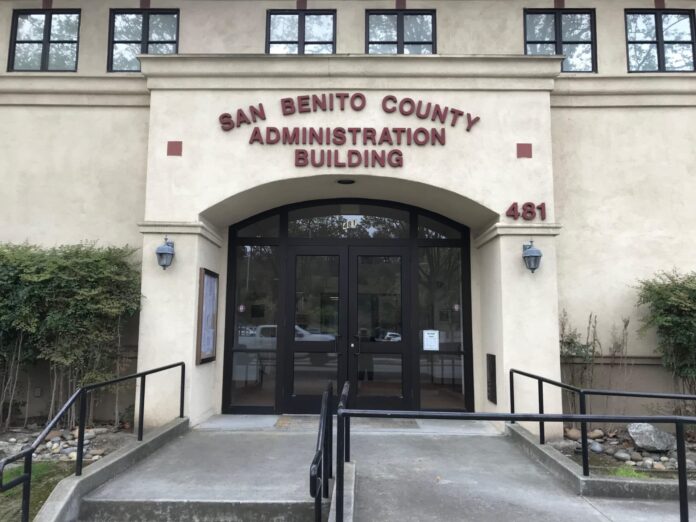San Benito County supervisors Tuesday had a lengthy discussion about industrial hemp and whether to initiate a moratorium on its growth until the state comes up with firm regulations.
The board didn’t take action Tuesday other than forming an ad hoc committee of two board members, Peter Hernandez and Anthony Botelho, who will study the issue and return with more to consider.
Despite some questions and potential concerns about such issues as potential odor and trespassing, there didn’t appear to be the same level of caution that supervisors took on cannabis. That’s because hemp is legal on the federal level and has almost no THC, the component in cannabis that gets people high.
The consideration on hemp comes on the heels of the 2018 Farm Bill that legalized the plant, which is used for a variety of industrial and other purposes.

Agricultural Commissioner Karen Overstreet started Tuesday’s discussion about a local hemp ordinance and called it a “very interesting crop” that is great for soil and can be used well on a rotational basis. She said there had been a lot of interest
With the passage of Proposition 64 in 2016, California opened the door for commercial hemp growth before the Farm Bill’s passage. Now, moreso, counties are responding to the federal change and examining their hemp policies.
While there were some questions about THC from supervisors, particularly Hernandez who has been largely anti-cannabis, Overstreet stressed that hemp cannot have more than 3/10 of a percent of the ingredient. Most marijuana with THC would have about 10 times to 100 times that level. If it does exceed the 3/10 of a percent figure, the plants get destroyed. She also ran down involvement from the county ag commissioner’s office, which would be involved with such oversight.
“We’ve had a lot of interest in industrial hemp for our county,” Overstreet said.
Some of the traits of hemp mentioned by Overstreet included that it can’t be grown on less than 1/10 of an acre and that there’s been a shift from cannabis to hemp growth due to fewer regulations and fees. She noted how the plants are generally at least 10-12 feet tall and that it’s typically grown outdoors.
Hemp growers also can operate through traditional financial institutions, she said.
Supervisor Anthony Botelho interjected at one point and asked about the $900 annual fee proposed for growers. The ag office would collect 15 percent of that fee to cover its regulatory and administrative costs.
“Are we pretty certain that there’s enough money there that covers your cost and all the testing and monitoring and recording back?” Botelho said.
“I don’t think so,” Overstreet responded.
One of the main concerns expressed Tuesday was potential for odor issues. Overstreet noted how growers would be subjected to 300-foot minimum setbacks and they’d have to abide by odor regulations.
In her presentation, Overstreet went over a summary of other California counties’ rules. She said in her survey, she found that seven counties have a moratorium, seven more were moving that way, and nine allowed it in agricultural productie lands. Only one county, Inyo County, has an ordinance with some restrictions, she said.
Overstreet mentioned the board could impose a 45-day moratorium while the ordinance is being worked on, but also that the state isn’t expected to have its regulations ready for at least the next couple of months.
Supervisors said they would reconsider the item when the ad hoc committee returns with its recommendations.




